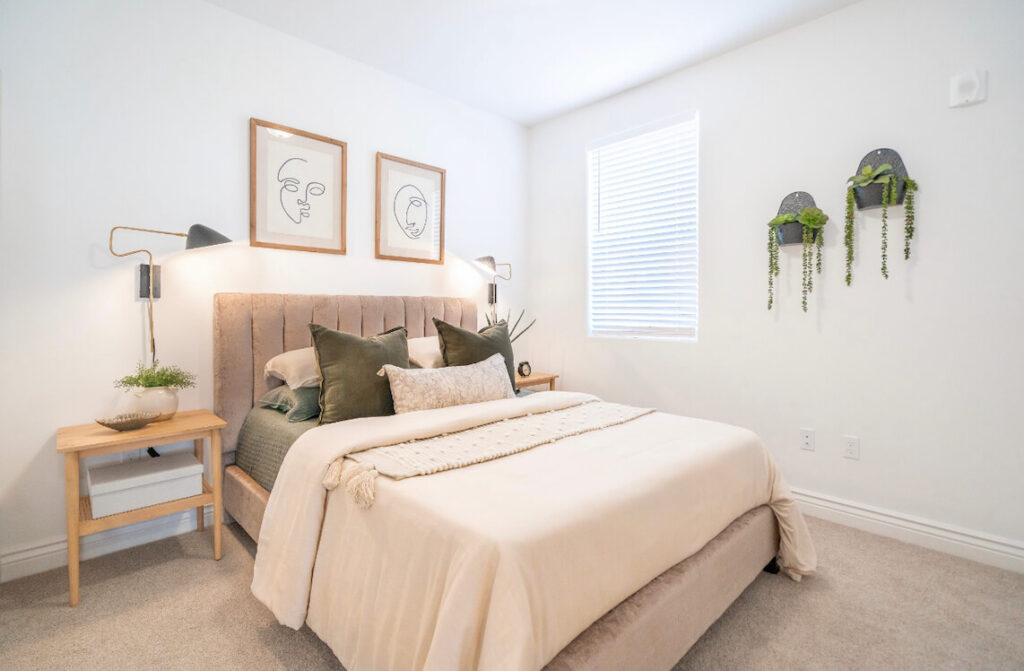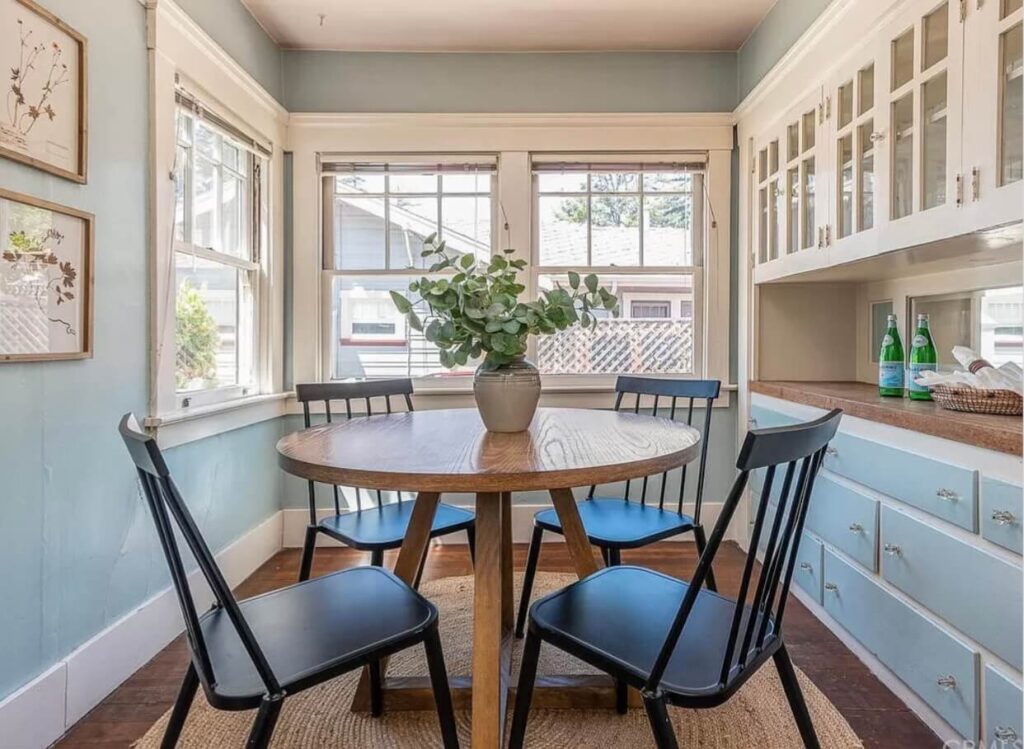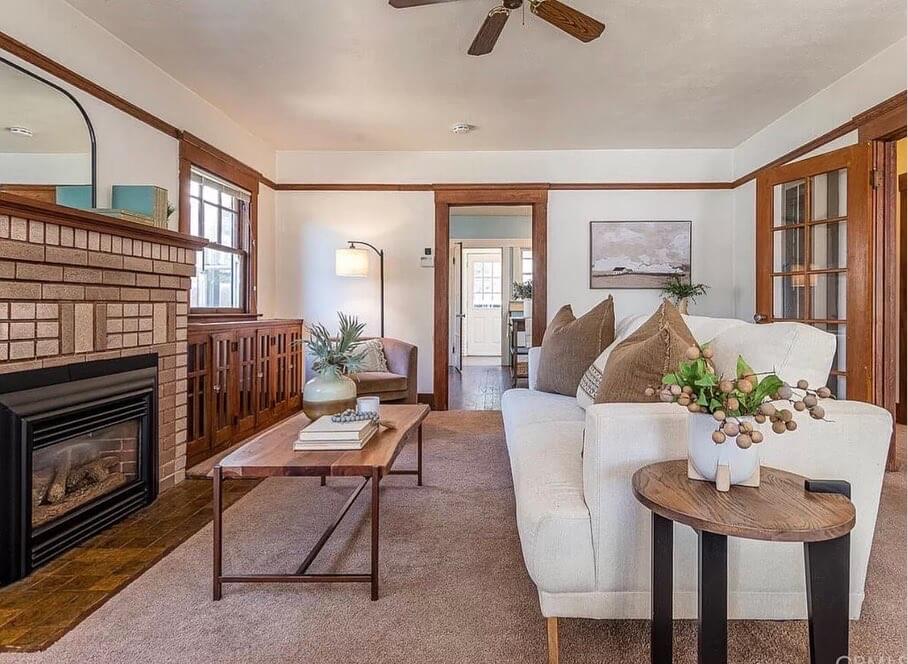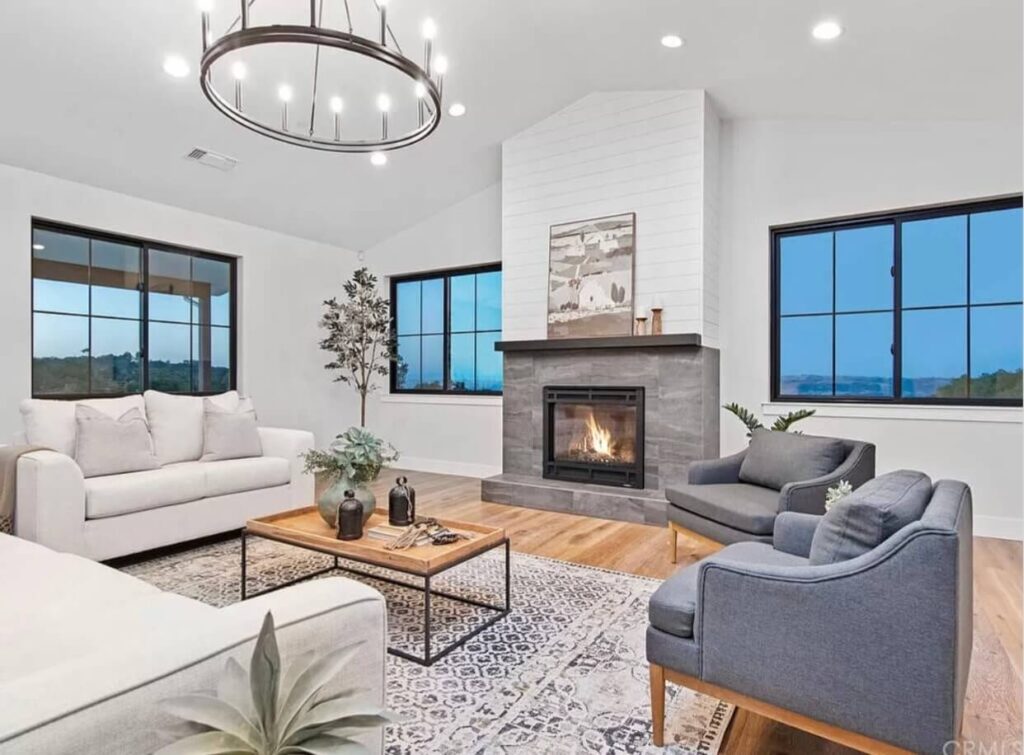Q: How does your commitment to RESA®, the exclusive nonprofit trade association for stagers, align with your professional goals and values?
Q: Would you share some insights into your creative process? Where do you typically find inspiration for your staging designs, and how do you translate that into your work?
Jessica: I find inspiration from other stagers and designers. I love following designers on Instagram who inspire me in my design work. I take the mood, colors, and design styles that speak to me the most and try to convey that within my designs.
Q: Can you recall a particularly challenging staging project? What obstacles did you face, and how did you overcome them? What did you learn from that experience?
Jessica: I would say the most challenging projects are when homeowners have a hard time letting go of what they want in the design. I don’t mind hearing client’s input about the style they envision but it is very challenging when they don’t grasp the idea that staging and professional interior designing are two completely different things.
I overcome these obstacles by being clear with clients about what our company provides and how our job is to present the home so it appeals to the most buyers and not their personal preference. I’ve learned a lot of communication skills and how to be patient yet firm on our standards.
Q: Could you share a memorable success story where your staging made a significant impact on a property’s sale price or time on the market? What were the key elements that contributed to that success?
Jessica: One home we staged sat on the market for 86 days over summer. Prime buying time! It was taken off the market, we staged it, new photos were taken and it was re-listed.
After only 6 days it was under contract. This home was unique and built specifically to the original owners wants. We worked with the awkward layouts and funky design elements to make the home “make sense” and distract from flaws.
Q: If you have a team of home stagers, could you share some insights into your approach to team management? What strategies do you use to ensure cohesion and consistent quality across your projects?
Jessica: I have a team of two movers and 4 design assistants. Creating clear expectations of what each person is in charge of, training on safety for themselves and client homes, and supporting my team to help them feel confident is something I strive to accomplish at all times.
I wouldn’t have a successful business without my team’s support and I show them that appreciation by offering incentives, holiday bonuses, and the flexibility with schedules to be available for family obligations.
Q: If you could stage a home for any celebrity, living or historical, who would it be, and what kind of design theme would you choose for their home?
Q: In the world of home staging, sometimes surprises happen. Could you share a funny or unexpected moment that occurred during one of your staging projects? How did you handle it?
Q: Imagine you could time travel to any era in history to stage a home. Which period would you choose, and what elements from that era would you incorporate into the design?
Q: What are some common misconceptions or objections you’ve encountered about home staging, and how do you educate potential clients or naysayers about the benefits it brings to the selling process?
Jessica: It’s too expensive and it’s not necessary. I always tell clients that staging their homes will always be less expensive and more appealing than their first price drop.








